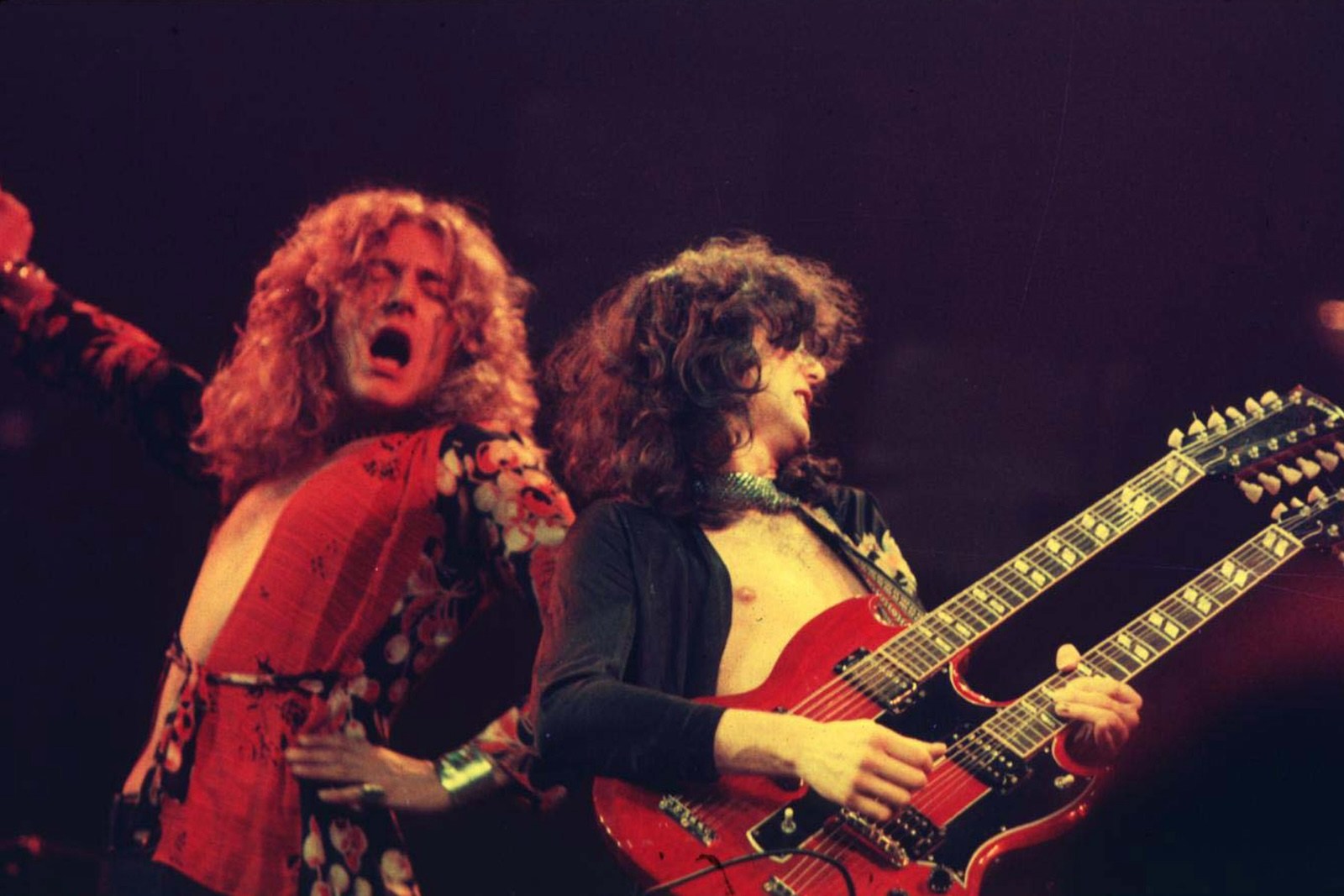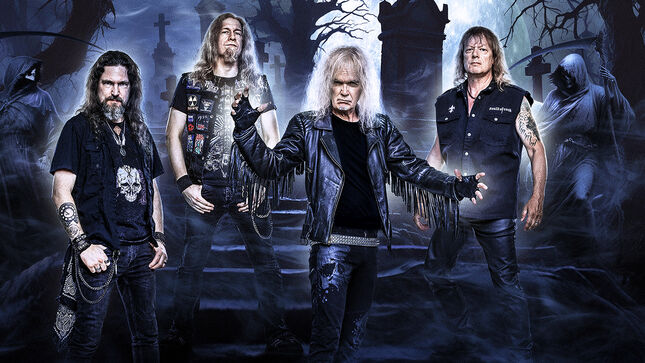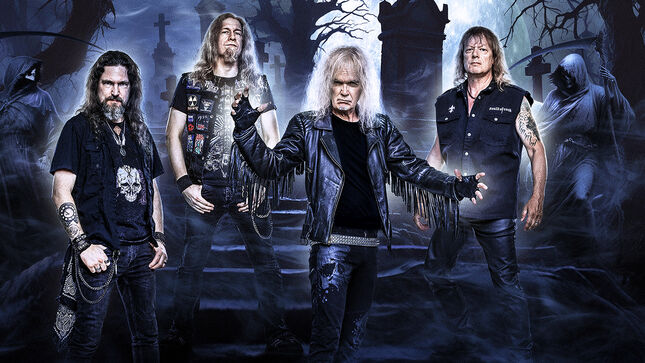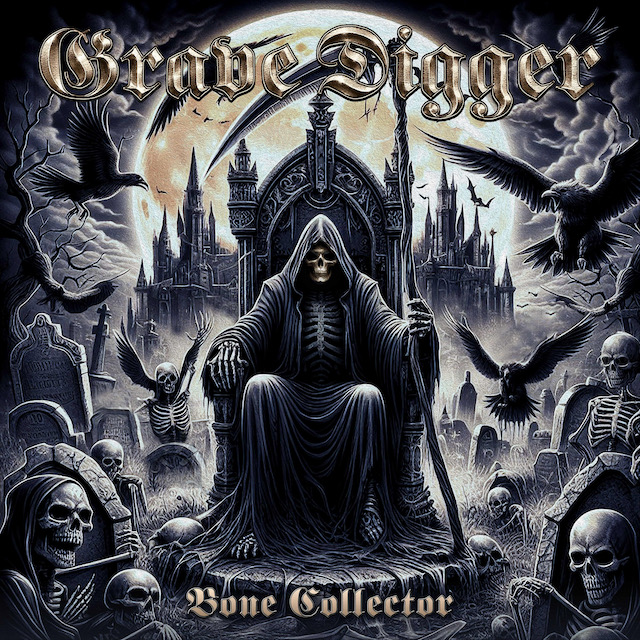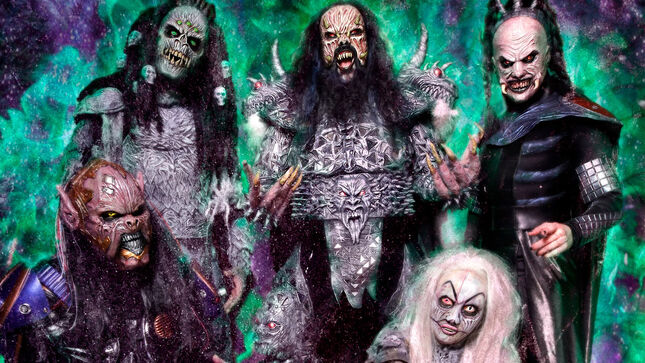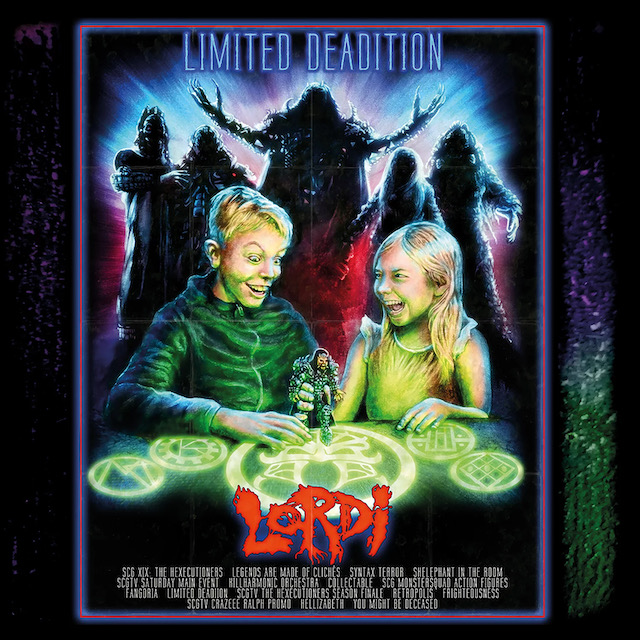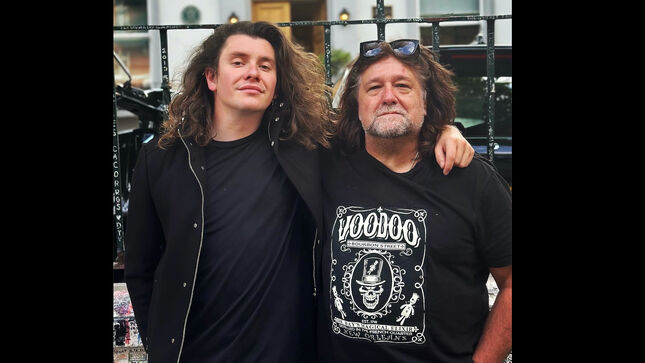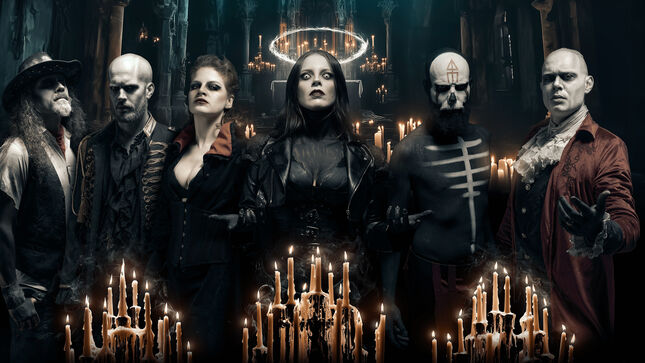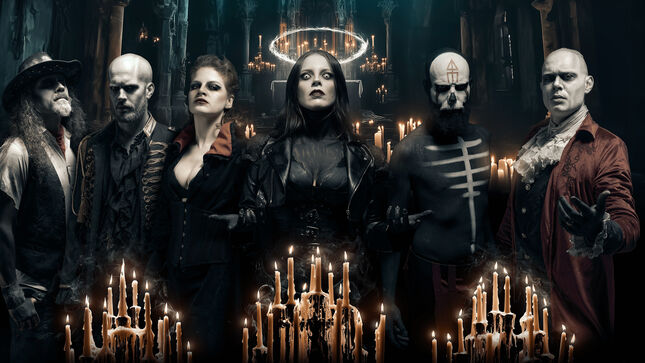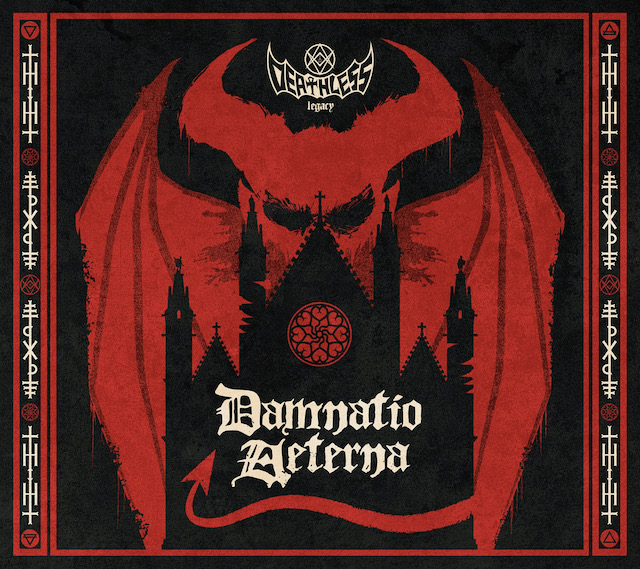By the time Led Zeppelin launched their injury-plagued 1975 North American tour on Jan. 18, they found themselves in the curious position of simultaneously being the biggest and perhaps most hated rock band on the planet.
The British titans had spent the previous six years smashing concert attendance records and selling millions of copies of each of their first five albums. But the press continued to disparage Led Zeppelin with savage glee, writing them off as bombastic, barbaric blues plagiarists with no sense of musical subtlety or personal decorum. Led Zeppelin, in turn, hated the press and had been accused more than once of assaulting members of the media.
The band and their management both sensed it was time for change, so on their mammoth 1975 North American tour, Led Zeppelin invited members of the press to cover their shows and, in some cases, travel with them on their private jet, The Starship. Demand was unprecedented, and fans snapped up tickets for nearly 40 arena and stadium shows within minutes. Led Zeppelin seemed poised to extend their reign as the preeminent hard rock band of the era, and this time they would have favorable media coverage to validate their success.
It was unfortunate, then, that Jimmy Page and Robert Plant‘s physical ailments threatened to derail the tour before it even began.
READ MORE: Led Zeppelin Live Albums Ranked
Led Zeppelin’s 1975 Tour Hampered by a Broken Finger and the Flu
Back in England, Page had crushed his left ring finger in a train door, forcing him to develop a three-finger technique for Zeppelin’s upcoming trek. And by the time the band landed in Chicago on Jan. 16, two days before the tour kickoff, Plant had come down with a nasty cold that hampered his banshee wail.
Nevertheless, Led Zeppelin kicked off their tour on Jan. 18 at the Metropolitan Sports Center in Bloomington, Minnesota, following two European warm-up dates the previous week. It marked their first trek in 18 months, and Plant admitted during the gig that the band was “a bit rusty.”
Bootlegs from the show support his assertion, as the frontman croaked some of his signature stratospheric high notes while a hobbled Page fumbled through some of his fleet-fingered solos. The guitarist’s injury forced Zeppelin to cut “Dazed and Confused” — a freewheeling, longform epic and routine high point of their shows — from their set, along with the slow blues inferno “Since I’ve Been Loving You.”
The Bloomington tour kickoff was not a total bust, though. The band hit their stride on the doom-laden “When the Levee Breaks,” which they had never played live before 1975, and they already sounded confident on the majestic, yet-unreleased Physical Graffiti epic “Kashmir.” A critic from Minnesota’s Free Press enthused: “If Led Zeppelin was operating at only half-speed, I would be hard-pressed to imagine how sensational this band would be on a good night!” On the flip side, journalist Stephen Davis noted in his book LZ-’75 that when the band ended their show after two hours and 15 minutes, the crowd booed ferociously as they had expected a three-hour performance.
Led Zeppelin Eventually Finds Their Groove on 1975 Tour
Unfortunately for Led Zeppelin, their physical afflictions would get worse before they got better on their 1975 tour. Although Page was able to numb his finger pain with copious amounts of Jack Daniel’s, Plant had no such recourse as his cold developed into a full-blown flu, forcing the cancellation of their St. Louis show in late January. (They played there a few weeks later on Feb. 16, the final date of the first North American leg.) Morale was low, but the band soldiered onward.
“I have no doubt the tour is going to be good, it’s just, dammit, I’m disappointed that I can’t do all I can do,” Page lamented to cherubic Rolling Stone journalist Cameron Crowe. “I always want to do my very best and it’s frustrating to have something hold me back. You can bet that ‘Dazed and Confused’ will be back in the set the very second I’m able to play it. We may not be brilliant for a few nights but we’ll always be good.”
As the tour progressed, Led Zeppelin gradually regained their footing, and their shows eventually returned to the epic grandeur of previous outings. The second leg of the trek coincided with the Feb. 24 release of Physical Graffiti, which earned rave reviews, topped the charts on both sides of the pond and ultimately sold 8 million copies in the United States alone.
Page also made good on his word to Crowe on Feb. 3, 1975, when Led Zeppelin reintroduced “Dazed and Confused” into their set during their first of three shows at New York’s Madison Square Garden. “No question about it,” Plant said that evening, “the tour has begun.”
Led Zeppelin, Jan. 18, 1975, Metropolitan Sports Center, Bloomington Set List
1. “Rock and Roll”
2. “Sick Again”
3. “Over the Hills and Far Away”
4. “When the Levee Breaks”
5. “The Song Remains the Same”
6. “The Rain Song”
7. “Kashmir”
8. “The Wanton Song”
9. “No Quarter”
10. “Trampled Underfoot”
11. “Moby Dick”
12. “In My Time of Dying”
13. “Stairway to Heaven”
14. “Whole Lotta Love”
15. “Black Dog”
Led Zeppelin Albums Ranked
Counting down every canonical Led Zeppelin album, from worst (relatively speaking, of course) to best.
Gallery Credit: Nick DeRiso

